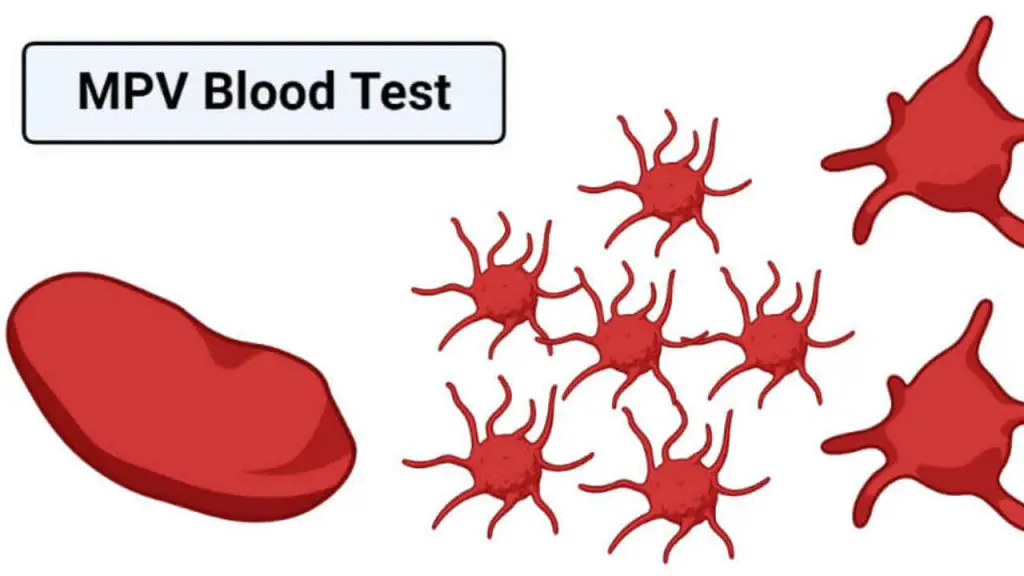If you’ve ever received a blood test, you may have noticed some letters and numbers next to your cholesterol or glucose levels. MPV is one of these letter and number combinations, but what does MPV mean in a blood test?
In this post, we’ll break down what MPV stands for and what it means for your blood test results. Stay tuned!
What Is MPV And What Does MPV Mean In A Blood Test?

You’ve probably had a blood test before. Maybe it was to check your cholesterol or to see if you have diabetes. Blood tests can be used to check for all sorts of things, including what’s called your MPV. MPV stands for mean platelet volume. Platelets are cells in your blood that help with clotting.
Your doctor may order a blood test to check your MPV if you have a bleeding disorder or if you’re taking a medication that can affect your platelets. The test measures the average size of your platelets.
A high MPV could mean that you have a condition that’s causing your body to produce larger-than-normal platelets. A low MPV could mean that you have a condition that’s causing your body to produce smaller-than-normal platelets. The normal range for MPV is 7 to 11 percent.
If your results are outside of this range, it doesn’t necessarily mean that you have a problem. Your doctor will interpret your results along with other factors, such as your medical history and symptoms. They’ll then decide whether you need further testing or treatment.
Possible Causes Of High Or Low MPV Levels
The mean platelet volume (MPV) is a calculated measure of the average size of your platelets. Platelets are colorless blood cells that help prevent bleeding by clumping and forming plugs in damaged blood vessels. MPV is measured in femtoliters (fm or FL), which are equal to 10-15 liters. The normal range for MPV is 7 to 11 fL.
A high MPV usually means that your platelets are larger than normal. This may be due to an underlying medical condition, such as cancer, bone marrow disorders, or autoimmune diseases. One possibility is polycythemia vera, a condition in which the bone marrow produces too many red blood cells. Another possibility is a reaction to a medication or exposure to toxic substances. High MPV levels can also occur during pregnancy.
A low MPV usually indicates that your platelets are smaller than normal and may be due to a vitamin B12 or folate deficiency. A common cause is a lack of iron in the diet, which can lead to anemia. Other possible causes include blood loss, bone marrow problems, and certain medications. If you have a high or low MPV, your doctor will likely order additional tests to determine the cause.
How Could You Go About Reducing High MPV Levels If Necessary?
If you have high MPV levels, there are a few things you can do to reduce them. First, you can try to avoid triggers that may cause your body to produce more platelets, such as smoking, drinking alcohol, and being exposed to toxic substances. You can also try to improve your diet by eating more fresh fruits and vegetables, lean protein, and whole grains.
Getting regular exercise and managing stress levels can also help to keep MPV levels in check. If lifestyle changes don’t seem to be enough, talk to your doctor about medication options. There are a number of different drugs that can be used to treat high MPV levels, so you and your doctor can find the best option for you.
Risks Associated With Having An Abnormal MPV Level
An abnormal MPV level can be a serious health risk. MPV stands for mean platelet volume, and it is a measure of the average size of your platelets. Platelets are a type of blood cell that helps to clot your blood. If you have an abnormal MPV level, it means that your platelets are either too large or too small.
This can cause problems with blood clotting, and it can also increase your risk of bleeding. In some cases, an abnormal MPV level can also be a sign of a more serious underlying medical condition. If you have an abnormal MPV level, it is important to talk to your doctor so that they can determine the cause and provide treatment if necessary.
What Should You Do If You’re Told That Your Blood Test Results Show An Abnormally High MPV Level?
If you’re told that your blood test results show an abnormally high MPV level, it’s important to follow up with your doctor to find out more about what this could mean. MPV stands for mean platelet volume, which is a measure of the average size of your platelets. Platelets are a type of blood cell that helps to clot your blood and prevent excessive bleeding.
An abnormally high MPV level could be a sign of a number of different conditions, including blood disorders, bone marrow problems, or autoimmune diseases. It’s important to speak with your doctor so that they can order additional tests and determine what underlying condition may be causing your high MPV level. Treatment will vary depending on the underlying condition but may include medication, lifestyle changes, or surgery.
Tips To Improve Your MPV Levels
There are a few things you can do to improve your MPV levels. First, make sure you’re getting enough iron in your diet. Iron is essential for the production of red blood cells, which carry oxygen to the tissues. Second, eat foods rich in folic acids, such as leafy green vegetables, legumes, and nuts. Folic acid helps the body produce new red blood cells. Finally, get regular exercise.
Exercise increases the flow of oxygen-rich blood to the muscles and helps to maintain red blood cell health. By following these tips, you can help to ensure that your body has the resources it needs to produce healthy red blood cells and keep your MPV levels in check.
Additional Contents


